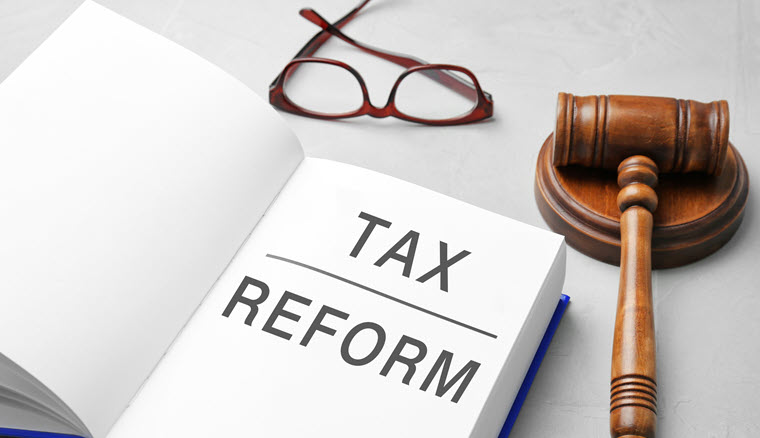For many Americans, estate planning is perceived as a concern primarily for the very wealthy. However, mid-net worth families—those who may not be subject to federal estate taxes but still have significant assets to protect—need careful planning to ensure their legacies are preserved and passed on according to their wishes. This blog explores effective estate planning strategies for those in the mid range of wealth, addressing common needs and objectives, and providing actionable insights. For a more detailed discussion of these issues and planning strategies, view the recent related webinar.
Related Speaker Series Webinar:
Mid-Wealth Estate Planning: Planning for the Rest of Us
March 5, 2025, 4pm ET
Understanding Mid-Net Worth Families
Mid-net worth families typically possess assets that include a primary residence, retirement accounts, investments, and perhaps a small business. These families might not face federal estate taxes – particularly if the high exemption brought in by the Tax Cuts and Jobs Act of 2017 is extended – but still need comprehensive planning to manage possible state taxes, potential healthcare costs, and the desire to pass wealth to the next generation efficiently and effectively.
Key Considerations in Estate Planning for Mid-Wealth Clients
- Revocable Living Trusts:
- Flexibility and Control: A revocable living trust offers control over assets while the client is alive and facilitates easier transfer of assets upon death, avoiding the often costly and time-consuming probate process. The lifetime control feature can prevent a guardianship proceeding if the client becomes incapacitated, allowing a successor trustee to manage assets without court involvement.
- Privacy and Probate Avoidance: Trusts help maintain privacy and avoid probate, which can be particularly beneficial if the family owns property in multiple states or if they reside in states with cumbersome probate processes. Even in states where probate is arguably “easy,” many heirs would prefer to avoid even the simplest court proceeding, and those heirs would appreciate the continuity of a revocable trust.
- Incorporating Flexibility to Address Changing Laws:
- Adaptable Structures: Given the ever-changing legal and tax environment, estate plans should be structured to allow flexibility. Discretionary trusts, powers of appointment, and provisions for amending trusts in response to new laws can help families adapt to changes.
- Future-Proofing Strategies: Estate plans should consider potential shifts in tax laws, including the possible reduction or elimination of estate tax exemptions. Several different types of “wait-and-see” estate plans can be recommended, depending the client situation. For some clients, a plan allowing a surviving spouse to disclaim can provide an avenue to minimize overall taxation, while others might be advised to use a marital trust approach, where the amount of the marital deduction and tax exemption used can be determined by the fiduciaries after one spouse passes away.
- Tax Efficiency in Retirement Planning:
- Understanding the SECURE Act: For many families, retirement accounts represent a significant portion of their wealth. Changes introduced by the SECURE Act impacted (and in most cases, severely shortened) the distribution period for inherited retirement accounts. These changes necessitate careful planning to minimize tax burdens and ensure that beneficiaries have time to grow their inheritances.
- Utilizing Roth Conversions: Converting traditional IRAs to Roth IRAs can be advantageous, as Roth IRAs offer tax-free growth and withdrawals, which can be particularly beneficial given the potential for future changes in tax rates and retirement account rules.
- Protecting Assets and Ensuring Proper Management:
- Choosing the Right Fiduciaries: The selection of trustees and executors is crucial. These should be individuals or institutions that the client trusts implicitly and who are capable of managing estate affairs effectively.
- Asset Protection Strategies: Trusts can provide significant asset protection benefits, for both surviving spouses, children, and future generations. The ability to shield inherited wealth from creditors, divorce settlements, and other legal challenges cannot be over-emphasized. While it is tempting – and expected – to give property to children (and others) without restrictions, using trusts can provide protection from future events that can’t always be predicted.
- Special Considerations for Unique Family Situations:
- Addressing Needs of Blended Families: Estate planning for blended families may require special considerations to ensure fair and intended distribution of assets among a more complex family structure. Second marriages often call for trust planning to provide certainty that children from a first marriage will benefit as intended.
- Charitable Intentions: For families interested in philanthropy, integrating charitable giving strategies into the estate plan can provide tax benefits and fulfill charitable goals.
Conclusion
Estate planning for mid-net worth families is not just about avoiding taxes but ensuring that wealth is transferred according to the family’s wishes, with minimal legal hurdles and in a tax-efficient manner. It involves thoughtful consideration of each family’s unique circumstances and goals, requiring tailored solutions that provide flexibility to adapt to legal and financial changes over time. Effective estate planning empowers mid-net worth families to protect their assets, provide for their loved ones, and establish a lasting legacy, making it a critical component of their financial planning strategy.’s wishes.
Meet the Author

Deirdre R. Wheatley-Liss divides her practice between representation of business owners and their businesses, counselling individuals and families, and advising non-profit entities. Ms. Wheatley-Liss counsels business owners on legal and structural issues related to start-up, financing, growth and exit strategy. As a tax attorney, she always keeps an eye on minimizing a business owner’s “silent partner” – the IRS. She also advises on director and officer (D&O) liability issues, including business succession and break-ups. By creating the most efficient organizational structures and contractual arrangements during the infancy and growth of a business she has helped clients keep hundreds of thousands of dollars in their pockets upon the sale of the mature business. To educate both the public and the legal community about issues relating to business ownerships, Ms. Wheatley-Liss is a frequent lecturer to professionals and the public on topics related to start-up, intellectual property, employee and independent contractor issues, wealth transfer, tax minimization, business succession planning and cybersecurity.



















































































